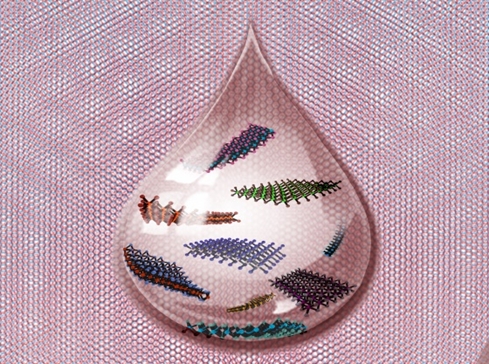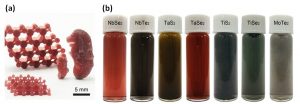
A NUS research team led by Prof LU Jiong, from the Department of Chemistry, NUS in collaboration with Prof Kostya S. NOVOSELOV from Materials Science and Engineering, NUS has developed a universal electrochemical exfoliation method for the synthesis of highly-crystalline two-dimensional superconducting monolayers (2DSC). These 2DSC monolayers are obtained in a stable suspension with monolayer production yield of up to 75%. They can be used for fabricating artificially designed structures that exhibit superconducting properties. This includes printing wafer-level 2D superconducting wires and constructing superconducting composites using 3D printing techniques (see the Figure below).

Prof Lu said, “This universal electrochemical exfoliation approach can be used for the scalable production of a library of solution-processable, highly crystalline 2DSC monolayers, offering huge technological potential for the development of new material properties beyond the reach of existing layered structures.” Read more on their new discovery here.
